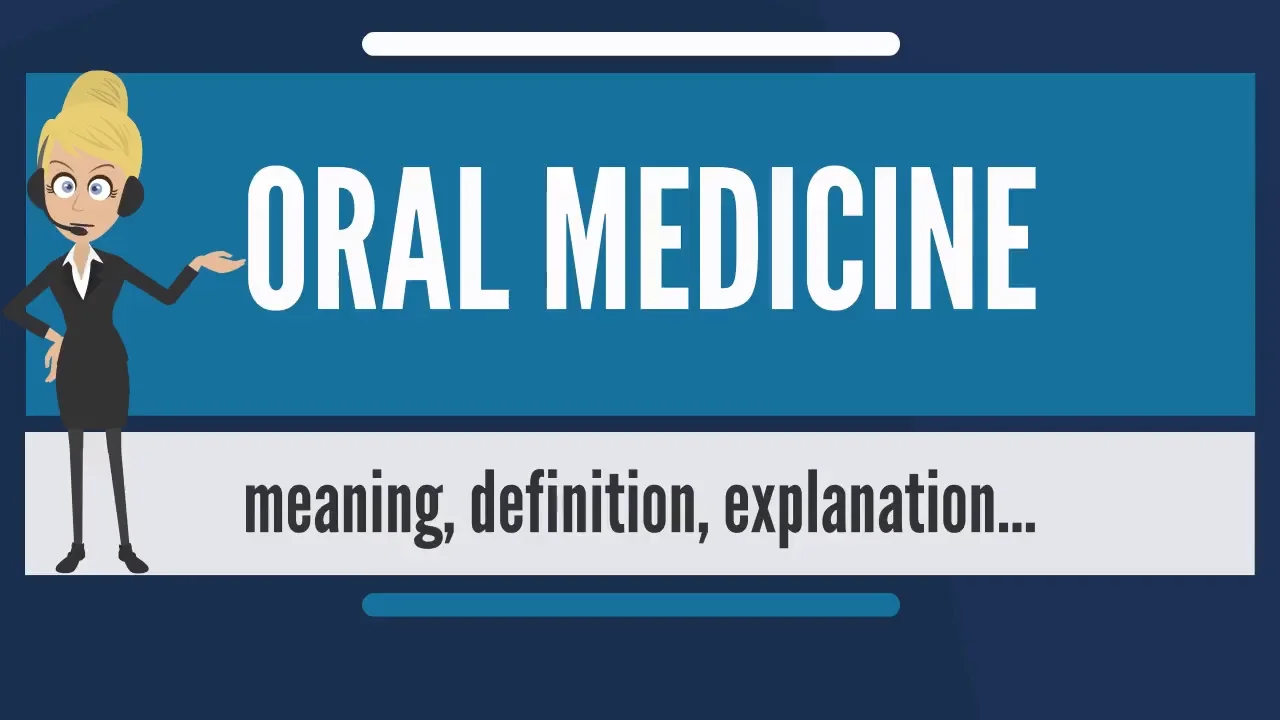**✪✪✪✪✪
http://www.theaudiopedia.com ✪✪✪✪✪**
What does ORAL MEDICINE mean? ORAL MEDICINE meaning - ORAL MEDICINE definition - ORAL MEDICINE explanation. What is the meaning of ORAL MEDICINE? What is the definition of ORAL MEDICINE? What does ORAL MEDICINE stand for? What is ORAL MEDICINE meaning? What is ORAL MEDICINE definition?
Source: Wikipedia.org article, adapted under
https://creativecommons.org/licenses/by-sa/3.0/ license.
Oral medicine (sometimes termed dental medicine, oral and maxillofacial medicine or stomatology) is a specialty focused on the mouth and nearby structures. It lies at the interface between medicine and dentistry.
The specialty is defined within Europe under Directive 2001/19/EC.
The importance of the mouth in medicine has been recognized since the earliest known medical writings. For example, Hippocrates, Galen and others considered the tongue to be a "barometer" of health, and emphasized the diagnostic and prognostic importance of the tongue. However, oral medicine as a specialization is a relatively new subject area.:2 It used to be termed "stomatology" (-stomato- + -ology).:1 In some institutions, it is termed "oral medicine and oral diagnosis".:1 American physician and dentist, Thomas E Bond authored the first book on oral and maxillofacial pathology in 1848, entitled "A Practical Treatise on Dental Medicine".:2 The term "oral medicine" was not used again until 1868. Jonathan Hutchinson is also considered the father of oral medicine by some.:2 Oral medicine grew from a group of New York dentists (primarily periodontists), who were interested in the interactions between medicine and dentistry in the 1940s. Before becoming its own specialty in the United States, oral medicine was historically once a subset of the specialty of periodontics, with many periodontists achieving board certification in oral medicine as well as periodontics.
Oral medicine is concerned with clinical diagnosis and non-surgical management of non-dental pathologies affecting the orofacial region (the mouth and the lower face).
Many systemic diseases have signs or symptoms that manifest in the orofacial region. Pathologically, the mouth may be afflicted by many cutaneous and gastrointestinal conditions. There is also the unique situation of hard tissues penetrating the epithelial continuity (hair and nails are intra-epithelial tissues). The biofilm that covers teeth therefore causes unique pathologic entities known as plaque-induced diseases.
Example conditions that oral medicine is concerned with are lichen planus, Behçet's disease and pemphigus vulgaris. Moreover, it involves the diagnosis and follow-up of pre-malignant lesions of the oral cavity, such as leukoplakias or erythroplakias and of chronic and acute pain conditions such as paroxysmal neuralgias, continuous neuralgias, myofascial pain, atypical facial pain, autonomic cephalalgias, headaches and migraines. Another aspect of the field is managing the dental and oral condition of medically compromised patients such as cancer patients suffering from related oral mucositis, bisphosphonate-related osteonecrosis of the jaws or oral pathology related to radiation therapy. Additionally, it is involved in the diagnosis and management of dry mouth conditions (such as Sjögren's syndrome) and non-dental chronic orofacial pain, such as burning mouth syndrome, trigeminal neuralgia and temporomandibular joint disorder.
